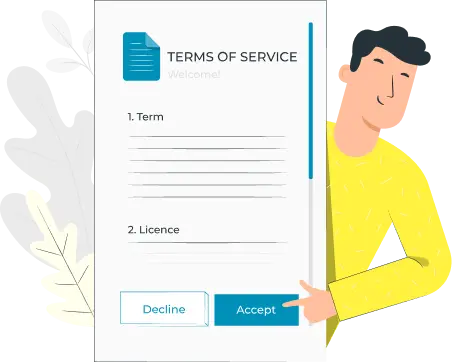A stock grant is a form of equity compensation provided to employees, usually in the form of company shares. Unlike stock options, which require employees to purchase shares at a predetermined price, stock grants give employees ownership of company shares without any upfront cost. Typically, these grants are subject to vesting schedules, meaning that the employee must remain with the company for a certain period before fully owning the shares.
Restricted Stock Units (RSUs) are one of the most common forms of stock grants. When a company awards RSUs to an employee, the shares are not immediately accessible. Instead, the employee must satisfy certain conditions—such as remaining with the company for a set period—before the shares vest. Once vested, the employee becomes the legal owner of the shares.
The primary advantage of RSUs is that they offer employees direct ownership of the stock upon vesting, unlike stock options, which require the purchase of shares. From the employer's perspective, RSUs can be used as a retention tool, encouraging employees to stay with the company until their shares fully vest.
In addition to RSUs, companies may offer performance-based stock grants, which are contingent on the achievement of specific performance goals. These grants are typically tied to key performance indicators (KPIs) such as revenue growth, profit margins, or individual milestones.
Performance-based stock grants are a way to reward employees for their contributions to the company’s success. They incentivize employees to meet or exceed targets, as the vesting of their shares depends on meeting these performance metrics. For employers, this type of grant can be an effective tool to drive higher performance and align employee objectives with company goals.
One of the key benefits of stock grants is their ability to align employee interests with the long-term success of the company. Since stock grants provide employees with a stake in the organization, employees become more invested in the company’s overall performance. This creates a stronger sense of ownership and loyalty, leading to increased productivity and long-term retention.
By providing employees with equity, companies foster a culture of shared responsibility. Employees are no longer just working for a paycheck; they are contributing to the growth and value of the company they partially own. This sense of ownership can be a powerful motivator, particularly in fast-growing industries.
For many companies, particularly startups, stock grants are a critical component of their talent acquisition strategy. In highly competitive job markets, offering equity compensation can make the difference in attracting top-tier talent. While larger, established firms may offer higher salaries, smaller companies can compete by offering stock grants that have the potential for significant value as the company grows.
In addition to attracting new talent, stock grants are also an effective tool for retaining existing employees. A well-structured vesting schedule encourages employees to stay with the company for the long term, as leaving before the shares vest would mean forfeiting a potentially valuable asset.
Stock grants also offer potential tax advantages for employers. Unlike cash bonuses or salaries, which are immediately taxable as income, stock grants are typically taxed when the shares vest. This means that companies can offer competitive compensation packages without incurring immediate payroll tax liabilities.
For employees, the tax treatment of stock grants can be complex, depending on when they sell the shares and how long they hold them. Employers should work with tax professionals to ensure that both the company and its employees understand the tax implications of their stock grants.
Vesting schedules are a crucial element of any stock grant program. A well-defined vesting schedule ensures that employees earn their shares gradually over time, often spanning three to five years. The most common vesting structure is "cliff vesting," where no shares vest in the first year, followed by gradual vesting in subsequent years.
While stock grants can be highly valuable, their worth may not always be immediately apparent to employees, especially in early-stage companies where stock prices are volatile. HR teams and business leaders must effectively communicate the potential value of stock grants, explaining how they fit into the broader compensation package and the potential for future gains as the company grows.
Not all employees will have the same preferences when it comes to compensation. While stock grants may be appealing to some, others may prefer a higher salary or additional benefits. Offering flexibility in compensation packages allows employers to cater to individual preferences while still aligning employee interests with company performance.
Stock grants are a powerful tool for aligning employee interests with company success, attracting top talent, and fostering long-term retention. For HR professionals, CEOs, and business owners, effectively implementing a stock grant program requires careful consideration of vesting schedules, clear communication of value, and flexibility to meet individual employee needs.
As companies continue to evolve in a competitive global market, offering stock grants as part of a comprehensive compensation package can differentiate your organization and create a culture of shared ownership. By leveraging the strategic value of stock grants, employers can build a motivated, engaged, and loyal workforce that is committed to driving long-term success.
Disclaimer: This article and all information in it is provided for general informational purposes only. It does not, and is not intended to, constitute legal or tax advice. You should consult with a qualified legal or tax professional for advice regarding any legal or tax matter and prior to acting (or refraining from acting) on the basis of any information provided on this website.
Choose Glints TalentHub as your partner in Southeast Asia.
Building your Team in
Southeast Asia with Glints' EOR Service

Rapid
Team Setup
Launch Southeast Asian operations in a week for a seamless start

Full Suite of HR Offerings
Launch Southeast Asian operations in a week for a seamless start

Guaranteed 100% Compliance
Ensure total HR and legal compliance with expert local guidance

Dedicated & Immediate Support
Get quick, dedicated HR support within 24 hours